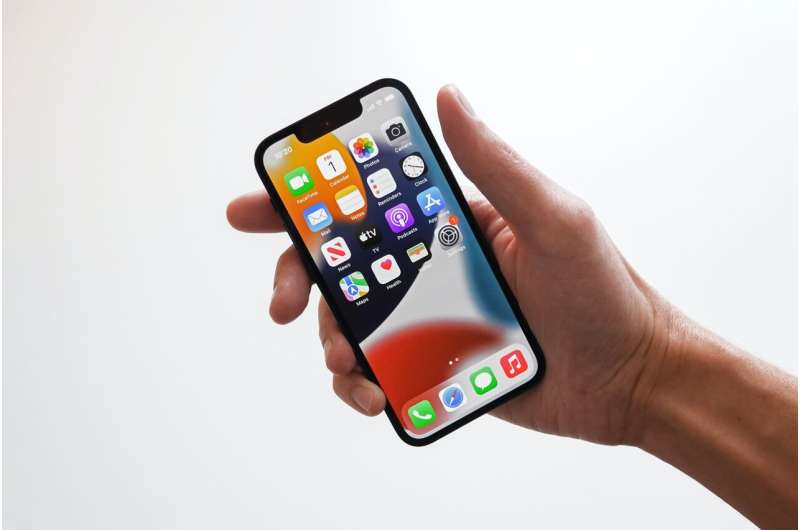This article has been reviewed according to Science X's editorial process and policies. Editors have highlighted the following attributes while ensuring the content's credibility:
fact-checked
trusted source
proofread
Study finds the quality of most dementia apps is insufficient

Memory training, exercises to improve brain fitness, early detection tests for dementia or tools to help caregivers organize their daily schedule: The range of apps for people with dementia and their care-giving relatives is very wide.
A team of researchers at FAU and digiDEM Bayern (the digital dementia register for Bavaria) has now evaluated the scientific evidence and quality for users of German language apps for people with dementia and their care-giving relatives for the first time and has come to two sobering conclusions.
There is no scientific evidence for the efficacy of most of the dementia apps available that are commercially available. In addition, many of the dementia apps only offer a mediocre user experience.
Germany has significant room for improvement when it comes to digitalization in the health service. At the same time, digital health applications continue to gain popularity. They are easy to download from app stores and can be used any time, anywhere.
"Many of the dementia apps are only of a mediocre overall quality," says Michael Zeiler from the Chair of Medical Informatics at FAU who is a research associate in the digiDEM Bayern project.
The aim of the study was to evaluate the benefits of German-language mobile health applications for people with dementia and their care-giving relatives.
The study used the German version of the internationally recognized Mobile App Rating Scale (MARS-D) The criteria for assessing user experience included functionality, design, information content and questions relating to patient safety and the quality of therapy.
"Patient safety received the lowest and worst score," explains Michael Zeiler. "This concerns questions about possible risks and damaging effects such as the wrong feedback and incorrect information."
No scientific evidence of efficacy for several apps
Zeiler and his team investigated the scientific evidence behind a total of 20 health apps. The quality of several of the supposed "digital aids" was also disappointing in this aspect. "There is absolutely no scientific evidence for the efficacy of most of the dementia apps. If users have to pay for dementia apps that have no proof that they are effective, then this is 'digital charlatanism'," explains neurologist and health economist Prof. Dr. Peter Kolominsky-Rabas.
Studies had been carried out on only six apps, or only 30 percent of the apps. Conversely, the researchers also discovered that scientific articles were often published about apps that had good quality assessment ratings.
More transparency and information required for the public
"The better researched health apps are, the more successful healthcare will be and therefore the more transparent the market for digital health apps will be," says Michael Zeiler.
With the exception of a small number of apps, health apps are not considered medical products. An app must first undergo testing by the Federal Institute for Drugs and Medical Devices (BfArM) before it can be listed as a digital health app in Germany. The aim of this testing is to increase the transparency on the market in terms of which apps actually meet the requirements regarding safety, functional capability, quality, data protection and data security.
"There is not always any evidence of the positive effect on health. We therefore urgently recommend that regular quality control checks are performed on these health apps according to strict scientific criteria that conform to international standards," says Prof. Dr. Peter Kolominsky-Rabas, who is a co-author of the study.
The researchers divided the apps they investigated into four categories.
- The "Information" category contains apps that provide various types of information about dementia to sufferers and their care-giving relatives.
- The "Cognitive training and games" category includes apps whose main aim is to improve the cognitive skills of dementia patients and thus slow down cognitive degeneration. In some cases, care-giving relatives receive ideas for training that can be carried out together without digital apps.
- The "Screening" category incorporates apps that aim to find various cognitive impairments using various tests and recommend that users seek medical advice if they have the relevant symptoms.
- The "Support" category includes apps that provide support to dementia patients or their care-giving relatives in their day-to-day lives, for example with a chatroom that enables users to share images and events.
The work (in German) is published in the journal Zeitschrift für Evidenz, Fortbildung und Qualität im Gesundheitswesen.
More information: Michael Zeiler et al, Wissenschaftliche Evidenz und Nutzerqualität von Mobile-Health-Anwendungen für Menschen mit kognitiven Beeinträchtigungen und deren Angehörige, Zeitschrift für Evidenz, Fortbildung und Qualität im Gesundheitswesen (2023). DOI: 10.1016/j.zefq.2023.01.003




















